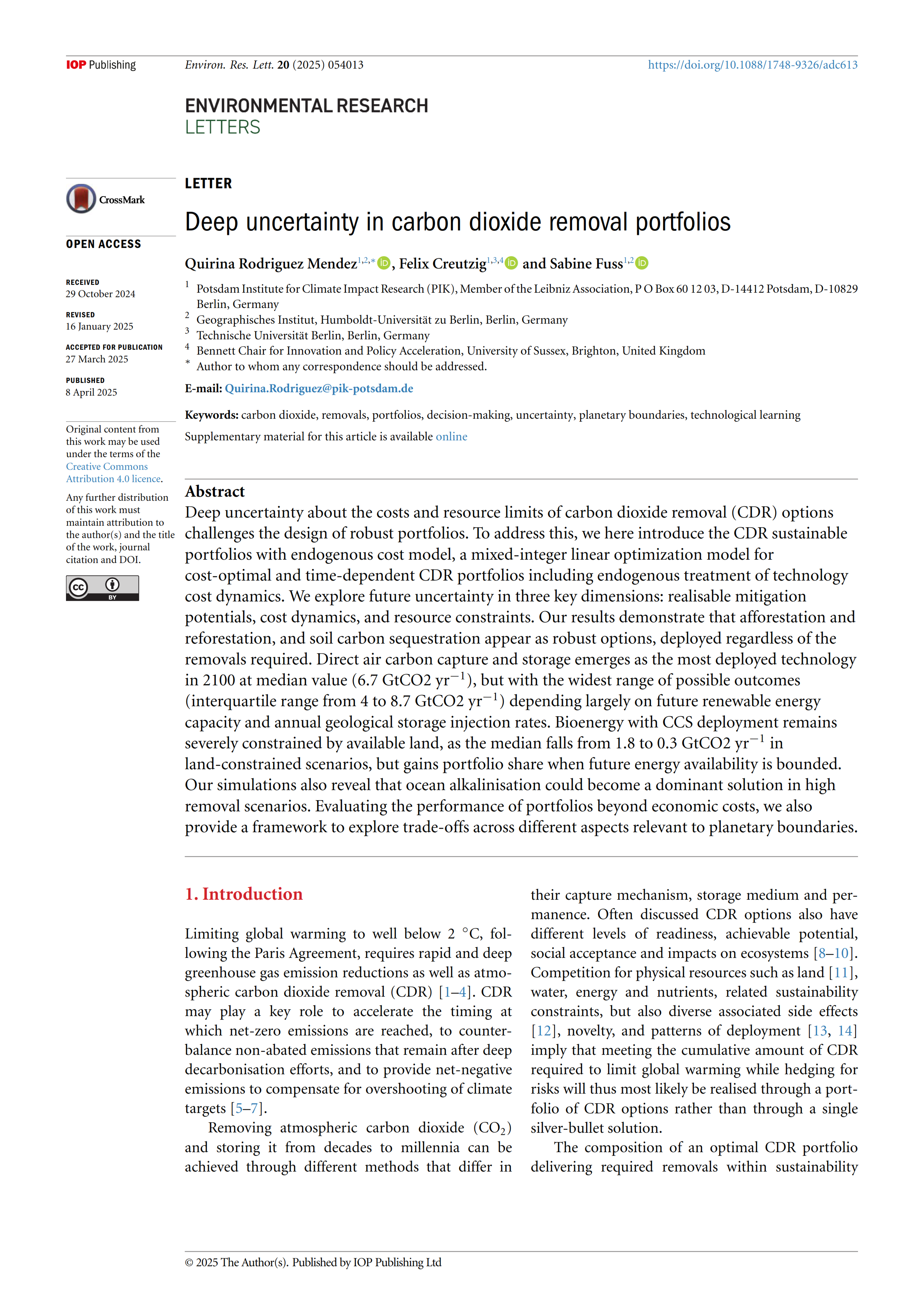Option-rich CDR pathway may be best due to uncertain future

Planning for carbon dioxide removal (CDR) isn’t just a matter of picking the right technology—it’s about navigating a maze of unknowns. A new study published in April 2025 in "Environmental Research Letters" by Quirina Rodriguez Mendez and colleagues offers perhaps the clearest framework yet for how to think about carbon removal not as a fixed path, but as a branching set of futures.
The authors explain that decisions about CDR are being made under conditions of “deep uncertainty” — not just in terms of cost estimates or carbon prices, but in fundamental questions like: how much land will be available? When will low-carbon energy be widespread? Which technologies will scale smoothly, and which will stall?
To probe these questions, the team built a new model called CDR-SPEC, which tested thousands of plausible futures using combinations of eight CDR approaches — from afforestation to ocean alkalinity enhancement. The model doesn’t try to predict the future. Instead, it asks: what would a sensible mix of CDR methods look like across a wide range of possible worlds?
Some patterns stand out. Forest restoration and soil carbon sequestration show up in nearly every portfolio, especially in the near term. Direct air capture becomes dominant later in the century, but only when there’s sufficient energy and storage space. Ocean alkalinity plays a bigger role when removal needs are very high. Bioenergy with carbon capture (BECCS) proves particularly sensitive to land constraints — its deployment plummets when agricultural space is tight.
The key takeaway is that no single approach will suffice, and that rigid CDR plans risk failure if the real world veers from expectations. The researchers suggest that policymakers and investors should design “option-rich” portfolios now — deploying low-regret strategies early while leaving room to scale different technologies depending on how key uncertainties unfold.
In an era where climate targets often seem to demand precision, this study offers a refreshing shift in emphasis: not toward knowing the future, but preparing intelligently for its many possibilities.
